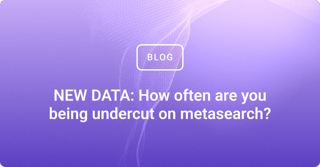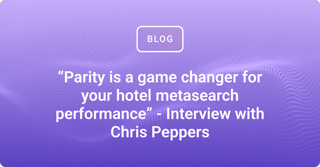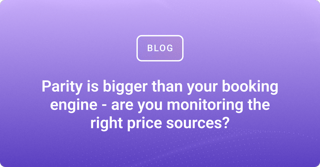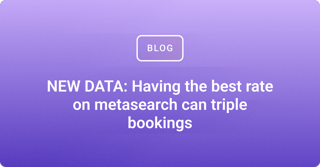With travel demand returning and online searches on the rise, you’ll want to make sure your direct website is visible to potential customers. But how can you set your hotel up for success when OTAs are spending billions to squeeze your direct booking channel out of the game? Limited time and resources can make it difficult to compete on search engines like Google, whether through SEO or paid advertising.
But there is another way to place your direct website in front of potential bookers: metasearch. This crucial marketing channel can help you grow your online presence, attract guests and lower your dependency on OTAs.
If you’re new to the world of hotel metasearch then you’ll probably want to start with the basics: what exactly is a metasearch engine, which are the top ones to prioritize? How do they work, and how will they help you to maximize your online visibility and increase your direct bookings? This article covers what you need to do, have and know to succeed on metasearch as we enter a new age of travel. When you’re finished reading, you’ll probably want to rethink your direct booking strategy to leverage the key opportunities of meta!
What is a metasearch engine?
First things first, it’s important to understand the difference between a metasearch engine and an OTA. Whereas an OTA is a booking channel that allows a visitor to complete a booking on a third-party website, a metasearch engine is an acquisition channel that provides visitors with a list of different booking options and redirects them to the booking channel of their choice. Whether this is an OTA or the hotel’s official website, the visitor can then go on to complete the booking.
The key difference lies in who owns the customer relationship at the end of the booking journey - an OTA owns the customer, whereas a metasearch engine doesn’t.
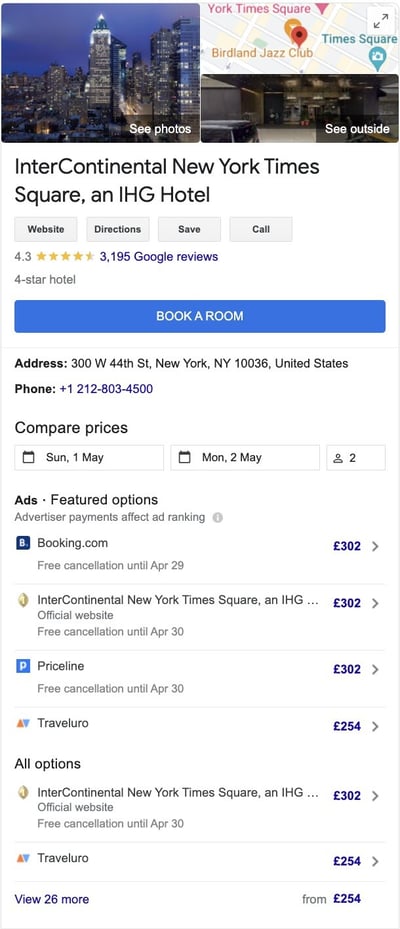
A metasearch engine is a price comparison platform in which visitors can search for booking dates for your hotel and shop for the best available rate. Some of the biggest ones include Google’s ‘Google Hotel Ads’, Tripadvisor, Trivago and Kayak. Visitors on metasearch are shown rates from all participating distribution partners and OTAs. The visitor can then click on the rate of their choosing and complete the booking directly on the partner’s website.

Since there are many booking channels competing for the customer’s attention, metasearch engines tend to work on an auction basis where partners bid for prime placement. Depending on the metasearch engine’s setup, participants will usually pay either a fee for clicks and impressions, or a commission on total booked revenue.
Why should hoteliers care about metasearch?
73% of travellers are believed to use metasearch regularly in their pre-booking journey. This alone makes it an essential marketing channel for maximizing your online presence and driving direct bookings.
Not participating on metasearch is like deliberately choosing to be left out of a shopping list that you know is being taken full advantage of by your competitors. By contrast, leveraging meta is your chance to attract guests and shift power away from OTAs.

Metasearch is furthermore regarded as a mid-to-low funnel marketing channel, meaning that it tends to deliver higher conversions and return on investment (ROI) compared to other top-of-funnel marketing channels like SEO, paid search and social media. Metasearch visitors have moved past the search and shortlist phase of their booking journey and are in the evaluation phase, meaning they have a higher intent to book.
This is your opportunity to capture their booking with minimal effort. However, remember that customers on metasearch haven’t actually clicked through to your booking engine yet. So you’ll still need to invest in a strong website conversion strategy to ensure you’re personalizing the experience for the guests who click through.
How does metasearch bidding work?
Remember that a metasearch engine won’t list your direct rate in the top slots, even if it’s the best rate available online, unless you’re actively bidding for those slots.
Your hotel might be visible anyway, but that’s typically because an OTA partner is bidding on your behalf. Bidding is often extremely complex and involves many decisions. Most meta engines have various ‘bidding levers’ that can be used to target customers based on particular searcher locations, check-in dates, lead times, lengths of stay, and user devices (such as desktop or mobile), among other factors. Once you’ve decided who to target you’ll then need to decide how much you’re willing to bid to ensure you’re visible over and above OTAs.

Managing bidding requires time and know-how, which is why doing this manually or getting a third-party agency to manage it manually for you is not always the best solution.
But there is another option for bidding: automation. Leveraging a technology partner like Triptease can help you deliver a level of sophistication that is impossible to replicate manually.
Triptease Metasearch uses an algorithm to adjust bids around the clock based on your unique customer and parity data, ensuring you’re always bidding for the right guests at the right time. The result? Higher booking volumes and ROI.
How important is parity to your metasearch performance?
A metasearch engine is a price comparison platform, so naturally how your direct price compares to other distribution partners will really matter.
Triptease data shows that when your price is cheaper direct, the number of bookings driven by meta increases by 3x. By comparison, being undercut by major OTAs like Expedia and Booking.com minimizes your conversion rate drastically.

So what does this mean for your hotel? There are two ways this should impact your metasearch strategy. Firstly, you’ll want to ensure your rates are as competitive as possible. Using a parity monitoring tool to keep track of OTA rates can help with spotting disparities and making sure distribution partners are playing by the rules you set. Triptease’s new Metasearch Parity Insights Dashboard lets you monitor exactly how customers are seeing your direct price on meta, showing you how often you’re being undercut and guiding you towards relevant action.
Secondly, you’ll want to leverage parity in your bidding. There’s no point bidding for the top slot on meta if you’re being undercut by major OTAs, as the customer will likely go for the lower rate. Bidding up when you’re out-of-parity can result in lower conversions and wasted budget. In cases where you’re significantly undercut it’s sometimes worth staying out of the auction altogether. On the other hand, bidding up when you’re in parity is a golden opportunity to secure the customer’s booking.
When choosing a metasearch partner, always ask how the provider leverages parity in their bidding. The Triptease algorithm places your parity at the centre of the bidding process, boosting your rate when it’s strong and lowering (or removing it entirely!) when you’re significantly undercut, as shown below.

Ready to get your hotel on metasearch?
We’ve given you the lowdown. Metasearch is a key marketing channel that can help you to maximize your hotel's online visibility, increase direct bookings and lower dependency on OTAs. Now the choice is yours - will you leverage this channel and reap the rewards of meta, or fail to appear on this vital shopping list for the majority of modern travellers?
To find out how Triptease can help you increase your direct bookings with a no-risk metasearch solution, fill out the form below and one of our direct booking coaches will be in touch shortly!
Benjamin is a Product Marketing Executive for Triptease Metasearch. He's passionate about helping hotels leverage technology to maximize their direct booking potential.
